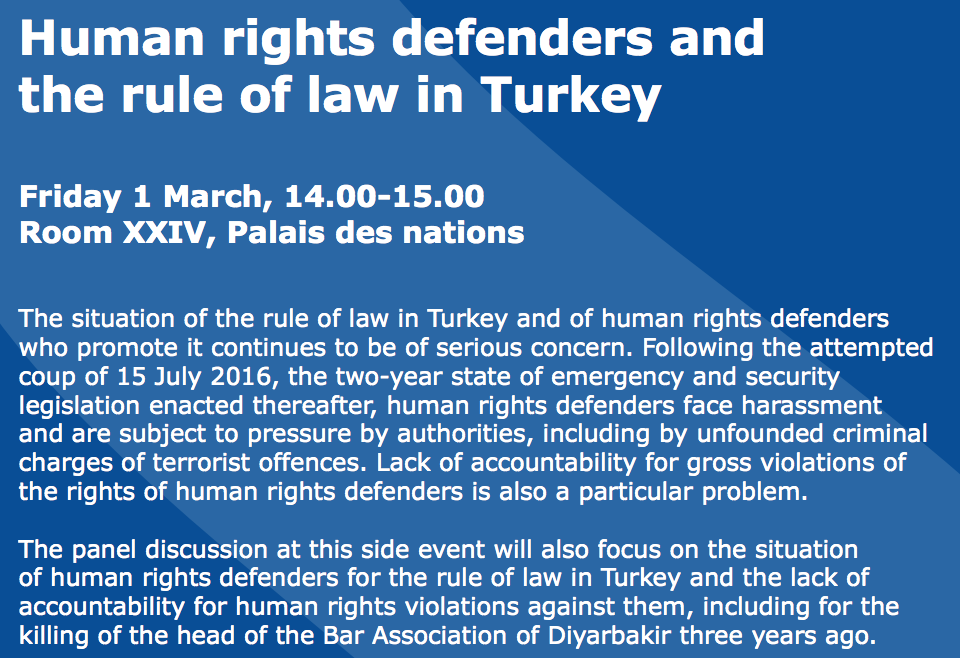
Mar 1, 2019 | Events, Multimedia items, News, Video clips
This event took place today at the Palais des Nations, United Nations, in Geneva. Watch it on video.
The situation of the rule of law in Turkey and of human rights defenders who promote it continues to be of serious concern.
Following the attempted coup of 15 July 2016, the two-year state of emergency and security legislation enacted thereafter, human rights defenders face harassment and are subject to pressure by authorities, including by unfounded criminal charges of terrorist offenses. Lack of accountability for gross violations of the rights of human rights defenders is also a particular problem.
The panel discussion at this side event will also focus on the situation of human rights defenders for the rule of law in Turkey and the lack of accountability for human rights violations against them, including for the killing of the head of the Bar Association of Diyarbakir three years ago.
The event is organized by the ICJ jointly with the International Bar Association’s Human Rights Institute.
Speakers:
– Michel Forst, UN Special Rapporteur on human rights defenders
– Feray Salman, Coordinator of the Human Rights Joint Platform (IHOP)
– Kerem Altiparmak, ICJ Legal Consultant
– Jurate Guzeviciute, International Bar Association’s Human Rights Institute
Chair:
Saman Zia-Zarifi, ICJ Secretary General
Event Flyer:
Turkey- HRD side event HRC40-News-Events-2019-ENG
https://www.facebook.com/ridhglobal/videos/795507517477571/
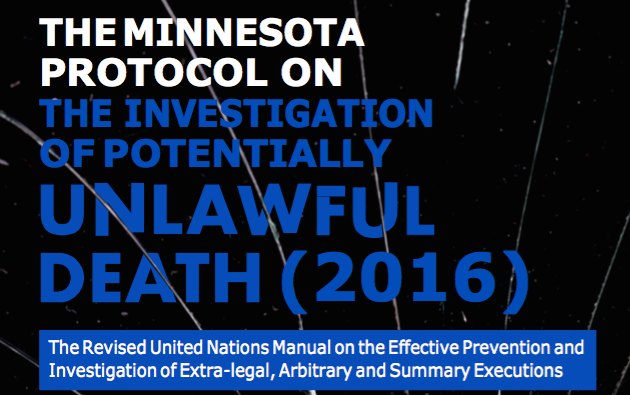
Mar 1, 2019 | News
On 28 February and 1 March, the ICJ met with senior officials of the Myanmar Police Force (MPF) and the Union Attorney General’s Office (UAGO) in Nay Pyi Taw.
The purpose of these talks was to promote the conduct of effective investigations into potentially unlawful deaths and enforced disappearance in accordance with international human rights law and standards, particularly the Minnesota Protocol on the Investigation of Potentially Unlawful Deaths (“Minnesota Protocol”).
Under customary international law, the right to life, and the right to be free from torture and other ill treatment, is not to be restricted even during an armed conflict or declared public emergency. All States are obliged to investigate, prosecute and punish acts that constitute violations of the right to life, and to provide effective remedies and reparations to victims.
Published by the United Nations Office of the High Commissioner for Human Rights, the Minnesota Protocol provides guidance to authorities on investigating acts amounting to human rights violations, including when State actors may have been involved. Drawing upon international law and standards, including in relation to the rights of victims and their families, the Protocol includes detailed guidelines on crime scene investigation, interviews, exhumations and autopsies.
Since December 2017, the ICJ has co-hosted four regional workshops in Thailand focused on this topic. Attendees have included lawyers, academics and State authorities from Thailand, Cambodia, Nepal, India and Myanmar.
Frederick Rawski, Director for Asia and the Pacific, Sean Bain, Legal Adviser, and Ja Seng Ing, Legal Researcher, composed the ICJ delegation in Myanmar’s capital.
Frederick Rawski proposed opportunities to continue these discussions on international standards into investigative procedures and processes. The ICJ Team also provided updates about related activities undertaken regionally and in Myanmar.
The ICJ has worked with the UAGO since 2014 to provide assistance on prosecutorial independence and human rights in the context of Myanmar’s broader democratic and legal reforms. This was the third meeting with the MPF over the last twelve months to discuss the conduct of investigations inline with international human rights law and standards.
Members of UAGO and MPF received copies of the Minnesota Protocol and indicated these would be shared with officials involved in the conduct of investigations or in setting the standards for them under national law in Myanmar.
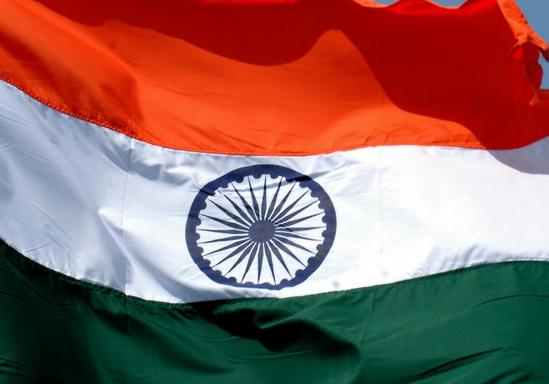
Feb 28, 2019 | Advocacy, News
The ICJ made a submission to Mr. Léo Heller, the United Nations Special Rapporteur (Special Rapporteur) on the human rights to water and sanitation, in response to a call for submission in advance of the Special Rapporteur’s 2019 Human Rights Council Report on the human rights to water and sanitation in spheres of life beyond the households, in particular in public spaces.
The ICJ’s submission focuses on the status and the impact of inadequate access to water and sanitation on lesbian, gay, bisexual, transgender and queer individuals (LGBTQ), and more specifically on transgender persons and non-binary persons, in India.
ICJ’s submission draws on its ongoing work on the human rights of LGBTQ persons in India, where from 2017 to date, the ICJ has studied LGBTQ persons’ access to and enjoyment of economic, social, and cultural rights, focusing on access to adequate housing, decent work, and public spaces and services including water and sanitation. The goal is to reveal, address, and reduce discriminatory treatment against LBGTQ persons in accessing economic, social and cultural rights as a result of discriminatory laws and practice through advocacy with the Indian State and with the United Nations.
Read the full submission here.
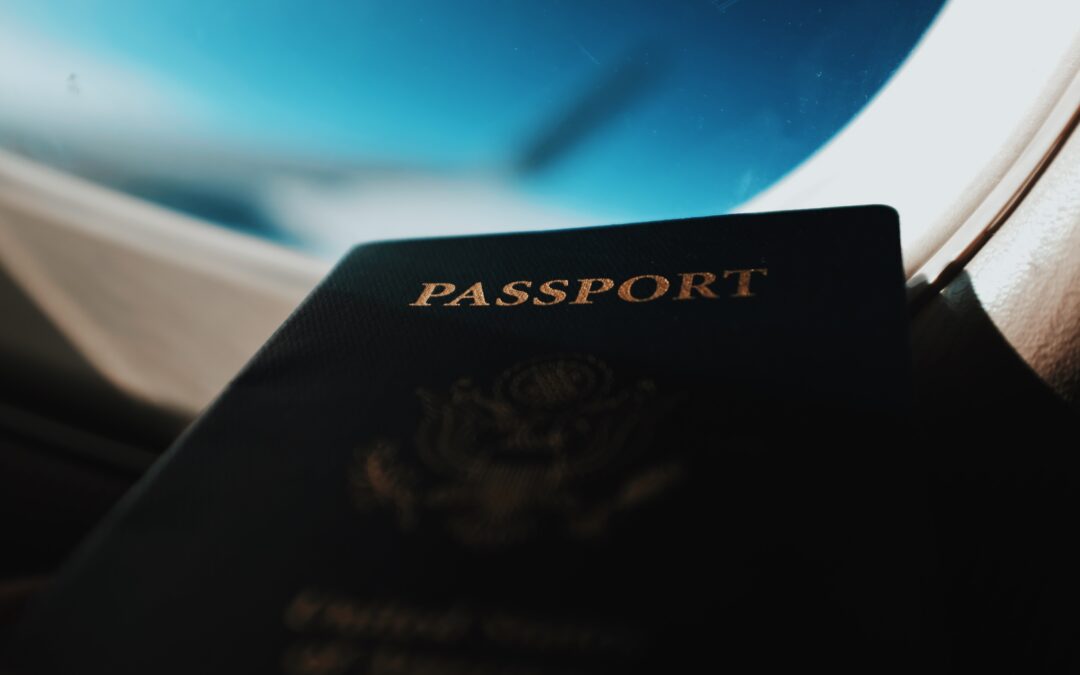
Feb 19, 2019 | Advocacy, Cases, Legal submissions
On 19 of February the ICJ submitted a third party intervention to the European Court of Human Rights in the case of Telek and others v. Turkey.
In its intervention, the ICJ addresses two main questions considering the effectiveness of domestic remedies concerning passport cancellation as a consequence of dismissal under emergency decrees:
- Whether the State of Emergency Commission and/or judicial remedies subsequent to the decision of the Commission might constitute an effective remedy.
- Whether separate remedies for passport cancellation can provide effective relief for the applicants’ claims.
In that respect of mentioned systemic issues the ICJ presents the Court the observations concerning the capacity of the Turkish legal system to provide effective remedies for violations under the European Court of Human Rights, in light of its Convention obligations, in particular obligations under Article 13.
The ICJ submission includes analysis of the Turkish legal system based in part on an ICJ mission to Turkey undertaken in May 2018 that focused on the functioning of the State of Emergency Commission created by Legislative Decree no. 685.
Turkey-icj-Telek&Others-Advocacy-legal submission-2019-ENG (download the intervention in Telek and others v. Turkey).
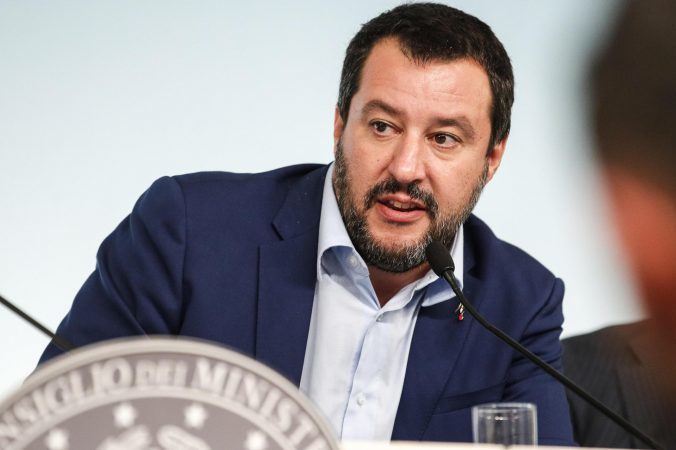
Feb 19, 2019 | News
The ICJ today called for the Italian Senate to allow for the investigation of the Minister of Interior and Vice-President of the Council of Ministers, Matteo Salvini, for his role in the alleged arbitrary deprivation of liberty of some 177 persons, including potential refugees, held for five days on the “U-Diciotti” boat last summer.
The ICJ said that the Italian Senate’s Commission on Elections and Immunities should recommend the authorization of the criminal investigation to the full Senate, where Matteo Salvini also sits as a Senator.
“The decision on investigation of gross human rights violations such as mass and arbitrary deprivation of liberty should not be subject to political scrutiny but be left to the assessment of the judiciary,” said Massimo Frigo, Senior Legal Adviser for the ICJ Europe Programme.
The indictment for “kidnapping” against Minister Salvini has already been approved at the judicial stage by the Tribunal of Ministers of Catania, which affirmed that Minister Salvini is alleged to have abused his administrative power in this matter for the political goal of negotiating resettlements with other European countries.
“No human being should effectively be made hostage for the purpose of political negotiations,” said Massimo Frigo.
“It does not matter which country may have been primarily responsible for the rescue at sea. No authority may arbitrarily restrict of the right to liberty of 177 human beings,” he added.
The ICJ considers that it is highly problematic for the principle of the rule of law that the decision on prosecution for a crime underlying a gross violation of human rights, such as kidnapping, be entrusted to a political body.
This decision should be left to the judiciary based on legal and not political grounds.
Under international human rights law, including the European Convention on Human Rights and the International Covenant on Civil and Political Rights, States have an obligation to investigate, prosecute, try and, if found guilty, convict persons responsible of gross violations of human rights, among which counts the arbitrary deprivation of liberty.
This applies to all State officials, irrespective of their position of authority.
Contact
Massimo Frigo, ICJ Senior Legal Adviser, t: +41 22 979 38 05 ; e: massimo.frigo(a)icj.org
Background
The Italian “U. Diciotti” boat was at the centre of a political scandal last August when the Minister of Interior Matteo Salvini refused disembarkation of 177 people for several days in order to negotiate their resettlement with other European countries.
While the boat entered Italian waters on 20 August, they were eventually disembarked in the night between Saturday 25 and Sunday 26 August after some countries and the catholic church made some nominal declaration of resettlement or reception.
Minister Salvini was later accused of “kidnapping” for having arbitrarily deprived of their liberty the 177 persons on board the “U.Diciotti”. While the prosecutor in the case asked for the dismissal of the charges, the Tribunal of Ministers, composed of ordinary judges, that is responsible for the legal assessment of the indictment, held the indictment to be in accordance with the law and that sufficient suspicion existed to warrant an investigation.
According to article 96 of the Constitution and articles 8-9 of the Constitutional Law no. 1 of 16 January 1989, it is up to the Parliament to authorize the investigation and prosecution of a Minister. The decision would therefore be up to the Senate in the case of Minister Salvini, as he is a Senator. The Senate may refuse by absolute majority, if it considers “that the person has acted for the protection of a State interest that is constitutionally relevant or for the pursuance of a preminent public interest in the function of Government” (unofficial translation). No appeal is possible against this decision.
Reportedly, the President of the Council of Ministers, Giuseppe Conte, the Vice-President of the Council of Ministers, Luigi Di Maio, and the Minister Danilo Toninelli, have submitted observations to the Senate’s Committee holding that the decision in the case was the reflecting the line of the whole Government and not only of the Minister of Interior.









